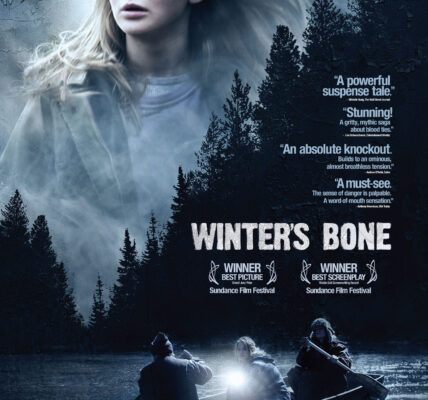Glasgow Film Festival is resurrecting a historic film city that, at one time, housed more cinemas per capita than any other in the world. But, much to local frustration, the reasonably new festival is habitually considered the underling when compared to its M8 neighbour Edinburgh
But Glasgow has earned the right to be judged on its own terms. Now in its ninth year, the 2013 edition of the festival spanned two weeks, 27 venues and 368 screenings and events, matching heavyweight international pedigree with the best of local talent. The festival got a response as well, with 39,106 total admissions; a 12 per cent increase on 2012 figures, lending weight to the claim of traction in the annual UK film calendar.
The festival featured its fair share of A-listers, boasting the first UK public screening of the Wachowskis’ Cloud Atlas, as well as the UK premieres of Derek Cianfrance’s The Place Beyond The Pines and Eli Roth’s Aftershock. Populaire, the new film from Régis Roinsard starring The Artist’s Bérénice Bejo, opened the Festival, while Avengers Assemble director Joss Whedon eschewed the Oscar ceremony to personally introduce his adaptation of Much Ado About Nothing, which closed the Festival.
A few Glaswegian necks were craned, meanwhile, as Saoirse Ronan and Gemma Arterton joined Neil Jordan on the red carpet for the UK premiere of Byzantium.
But the festival wasn’t purely focused on creating glam. Over 300 filmmakers and artists attended a city which seemed to give itself up for cinema, present and past; Glasgow Cathedral was turned into a cinema for the first time ever for a live-scored screening of silent masterpiece The Passion of Joan of Arc, Nevada, an experimental study of Marilyn Monroe and Arthur Miller’s relationship, was screened, while homage was paid to the original screen-gangster James Cagney, the first actor of Irish-heritage to make it in Hollywood, with the retrospective James Cagney: Top of the World.
Necks were again craned for the arrival of Jane Birkin, the Anglo-Parisian sex symbol who flew into Glasgow for the UK premiere of her film Souvenirs of Serge, about her relationship with Serge Gainsbourg. The screening was followed by a live performance by Birkin of her lover’s tracks.
But which were the best films at the festival? Possibly the most anticipated was The Place Beyond the Pines, a real coup capture for the festival. Derek Cianfrance’s follow-up to Blue Valentine again stars Ryan Gosling alongside Bradley Cooper, Eva Mendes, Rose Byrne and Ray Liotta. It’s a sprawling, stately multi-generational drama shot with a clear appreciation for the New Hollywood cinema of the 70s, but with a humane freshness provided by Shame cinematographer Sean Hannity.
Gosling – brooding, unpredictable, at turns gentle and volatile – steals the film, despite another strong turn from indie-cinema’s new leading man Cooper. Separated into three distinct acts, the film can feel sketchy at moments, its sinews occasionally stretched to breaking point, and Mendes and Byrne, both playing hard-trodden wives, are never allowed the opportunity to demonstrate their range. Yet this remains a resonant, accomplished picture; further proof that sincerity is the order of the day.
The best documentary of the festival was Beware of Mr Baker, a stylishly audacious study of rock-n-roll’s last remaining outlier Ginger Baker, the drug-fueled drummer who redefined British rock music with aggressive, off-kilter drumming influenced by African beats and jazz percussion. Baker, who could only play in any time signature, founded Cream in the late 60s before embarking on a remarkably fickle, nomadic and ultimately destructive career. Director Jay Bulger tracked Baker – now a taciturn, almost-broken old man – to his home in South Africa, and swindled him into giving his first retrospective interview in decades by claiming – erroneously – he was a Rolling Stone journalist.
The film is structured in the conventional profile standard, comprising talking-head interviews (including Eric Clapton), animation sequences and archival footage, but is freshened by Bulger’s expertly judged willingness to insert himself into the narrative. The film finishes with a remarkable scene; Bulger defending himself against a physical attack from Baker who, despite himself, has fallen into a friendship with his interviewer, and is now enraged by the plucky boy’s decision to leave. Bulger, bloodied but unbowed, should have heeded his own title; beware of Mr Baker.
The star of the festival, though, was local stock. Scott Graham, an Aberdeenshire-native based in Glasgow, saw his debut film Shell screen on the last day of the festival, and it seemed to steal the city’s heart. Set in a remote garage at the base of a mountain pass leading to the Cairngorms, this quiet, minute and unsettlingly powerful study of a man’s relationship with his teenage daughter might be the announcement of a major new British talent. With only one piece of music played in the entire film (My Favourite Girl by King Creosote), Graham makes full use of the windswept locale, interrupted only by the whine of passing lorries. Scottish newcomer Chloe Pirrie – playing opposite veteran actor Joseph Mawle – gives a morphing, nuanced performance as the lonely Shell, slowly beginning to recognise her repressions. This is a total piece of cinema, made without budget but with an excess of dedication and craft. There couldn’t have been a better setting to bear witness.










